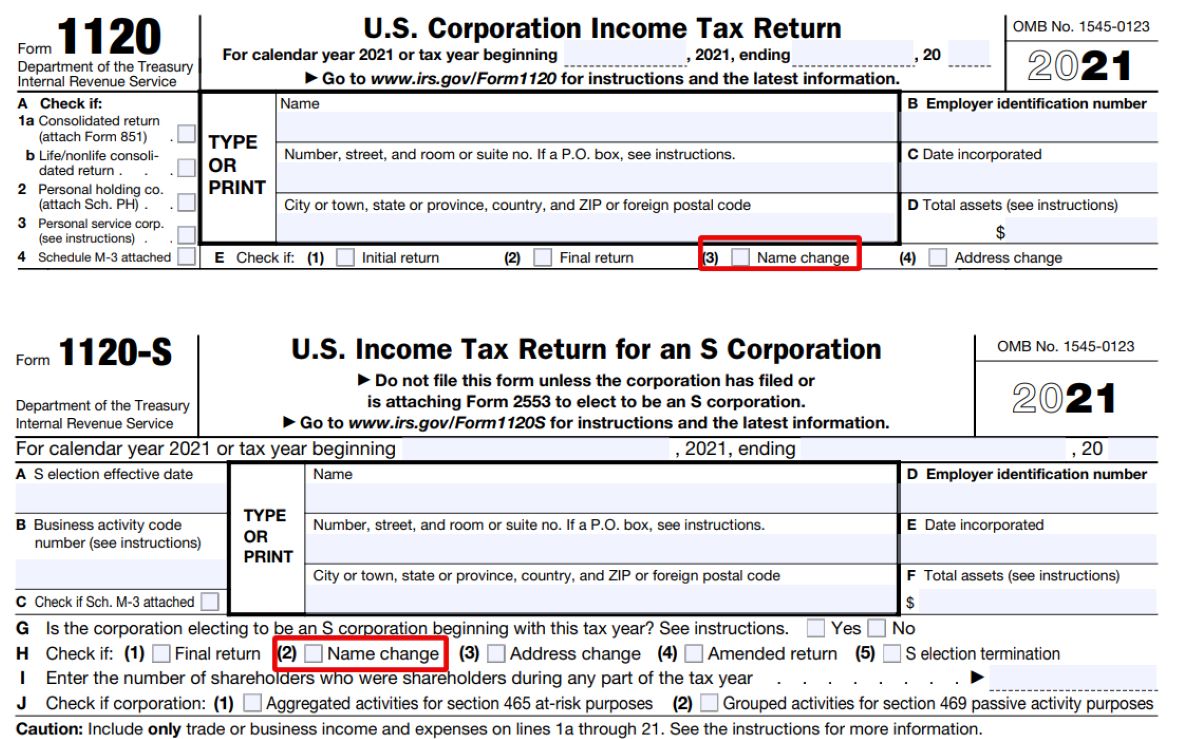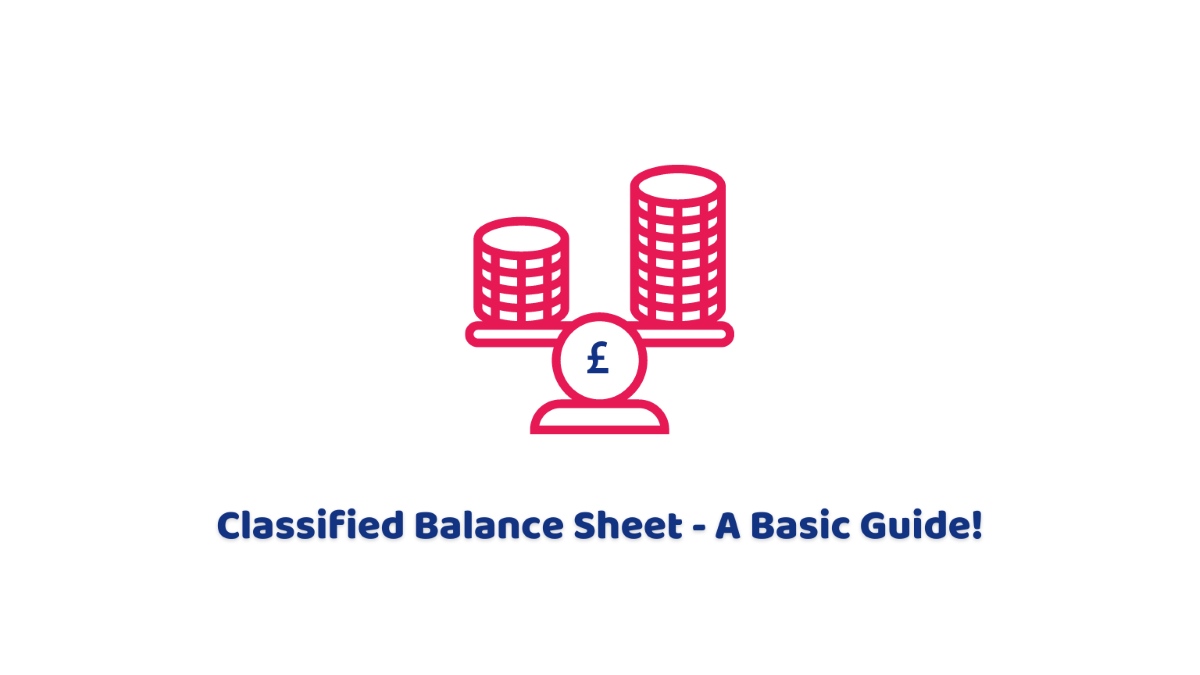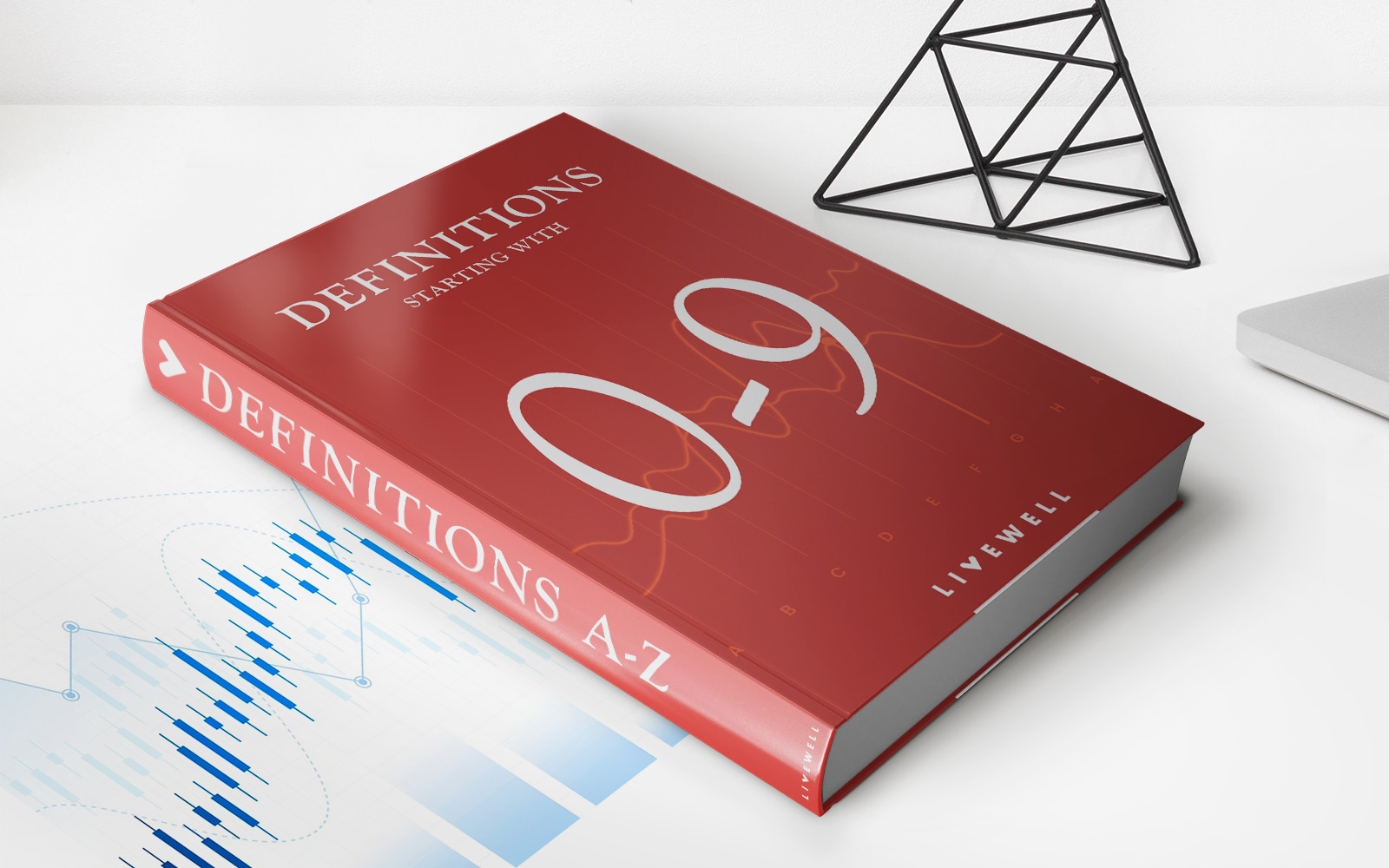Home>Finance>How Does Life Insurance Create An Immediate Estate?


Finance
How Does Life Insurance Create An Immediate Estate?
Published: October 16, 2023
Learn how life insurance can help you build an instant estate and secure your finances for the future. Discover the benefits of life insurance today!
(Many of the links in this article redirect to a specific reviewed product. Your purchase of these products through affiliate links helps to generate commission for LiveWell, at no extra cost. Learn more)
Table of Contents
- Introduction
- Understanding Life Insurance
- Benefits of Life Insurance as an Estate Planning Tool
- Creating an Immediate Estate with Life Insurance
- Factors to Consider When Using Life Insurance for Estate Planning
- Tax Implications of Life Insurance in Estate Planning
- Common Mistakes to Avoid in Utilizing Life Insurance for Estate Planning
- Conclusion
Introduction
When it comes to financial planning and securing the future of loved ones, estate planning plays a crucial role. While there are various tools and strategies available, life insurance has emerged as a popular choice. Life insurance not only offers financial protection to the beneficiaries in the event of the policyholder’s death but can also play a vital role in creating an immediate estate.
Life insurance is a contract between an individual and an insurance company, where the individual pays premiums in exchange for a death benefit paid out to the designated beneficiaries upon their passing. This death benefit can serve multiple purposes, including acting as a source of funds to cover final expenses, paying off debts, providing income replacement, and even creating an immediate estate.
By utilizing life insurance as an estate planning tool, individuals can ensure that their loved ones are provided for financially, even after they are gone. This can ease the burden on surviving family members and allow them to maintain their lifestyle, achieve their goals, and fulfill the deceased’s wishes.
It is important to understand the benefits of incorporating life insurance into an estate plan, as well as the factors to consider and potential tax implications. By having a comprehensive understanding of how life insurance creates an immediate estate, individuals can make informed decisions to secure their financial legacy.
In this article, we will delve into the concept of using life insurance for estate planning, explore the benefits it offers, discuss how it can create an immediate estate, examine various factors to consider, and highlight some common mistakes to avoid. Additionally, we will touch upon the tax implications of utilizing life insurance in estate planning.
By the end of this article, you will have a clear understanding of how life insurance can be a valuable tool in creating an immediate estate and how it can help safeguard the financial future of your loved ones.
Understanding Life Insurance
Before diving into how life insurance can create an immediate estate, it is important to have a solid understanding of what life insurance is and how it works. Life insurance is a contract between the policyholder and an insurance company, where the policyholder pays regular premiums in exchange for a death benefit that is paid out to the designated beneficiaries upon their passing.
There are different types of life insurance policies available, including term life insurance and permanent life insurance. Term life insurance provides coverage for a specific term, usually 10, 20, or 30 years, while permanent life insurance offers coverage for the policyholder’s entire life, as long as the premiums are paid.
When applying for a life insurance policy, the policyholder will have to undergo a medical examination and provide information about their health, lifestyle, and other relevant factors. This information helps the insurance company assess the applicant’s risk profile and determine the premium amount.
Life insurance policies provide a death benefit, which is the amount that is paid out to the beneficiaries upon the policyholder’s death. This death benefit can be a specific amount that is predetermined when the policy is purchased or can be based on the policy’s cash value, in the case of permanent life insurance.
In addition to the death benefit, some life insurance policies also offer a cash value component. This cash value grows over time as the policyholder pays premiums and can be accessed by the policyholder through policy loans or withdrawals, while they are still alive.
Overall, life insurance provides financial protection to the policyholder’s loved ones by ensuring they receive a lump sum payment upon the policyholder’s death. This can help cover final expenses, pay off outstanding debts, and provide for the beneficiaries’ financial needs.
Now that we have a clear understanding of what life insurance is, let’s explore the benefits it offers as an estate planning tool and how it can create an immediate estate.
Benefits of Life Insurance as an Estate Planning Tool
Life insurance serves several purposes in estate planning and offers several benefits as a valuable tool. Let’s explore some of the key advantages of using life insurance for estate planning:
- Immediate liquidity: Life insurance provides an immediate source of funds to the beneficiaries upon the policyholder’s death. This allows for the quick settlement of outstanding debts, payment of estate taxes, and distribution of assets without having to sell or liquidate other assets, such as real estate or investments.
- Protecting loved ones: Life insurance ensures that loved ones are financially protected in the event of the policyholder’s death. The death benefit can be used to replace lost income, cover living expenses, fund education costs, and even provide for long-term care needs, depending on the policy’s terms.
- Equalizing inheritances: Life insurance can help equalize inheritances among beneficiaries. For example, if one child is inheriting a family business, while the other child is not, the policyholder can name the child without the business as the primary beneficiary of a life insurance policy to provide them with an equivalent inheritance.
- Preserving the value of assets: In certain cases, individuals may have substantial assets tied up in illiquid investments or real estate. By using life insurance, they can ensure that these assets are preserved for future generations while providing immediate funds through the death benefit for the beneficiaries.
- Creating an estate: Life insurance can be used to create an immediate estate, especially for individuals who may not have significant assets to pass on. By naming beneficiaries in the policy, the death benefit becomes part of the individual’s estate, allowing them to leave a financial legacy for their loved ones.
These are just a few of the many benefits that life insurance offers as an estate planning tool. It provides individuals with peace of mind, knowing that their loved ones will be financially secure and their wishes will be fulfilled even after they pass away. The next section will delve into how life insurance can be used to create an immediate estate.
Creating an Immediate Estate with Life Insurance
Life insurance can play a crucial role in creating an immediate estate, ensuring that your loved ones have access to financial resources upon your passing. Here are some key points to consider when using life insurance to create an immediate estate:
- Naming beneficiaries: When purchasing a life insurance policy, it is important to designate beneficiaries who will receive the death benefit. These beneficiaries can be individuals, such as family members or friends, or even organizations, such as charities or trusts. By naming beneficiaries in your policy, you create an immediate estate by designating who will receive the proceeds of your policy.
- Consider the estate tax: Depending on the value of your total estate, you may be subject to estate taxes upon your passing. Life insurance can help offset these estate taxes by providing an immediate influx of cash to your beneficiaries. This allows them to cover the taxes without having to liquidate other assets, which may have sentimental or long-term value.
- Utilizing trust structures: Establishing a trust and naming it as the beneficiary of your life insurance policy can offer added advantages. Trusts provide flexibility, control, and privacy over the distribution of assets. By putting your life insurance policy into a trust, you can ensure that the proceeds are managed and disbursed according to your wishes, while also potentially reducing estate taxes.
- Choosing the right type and amount of coverage: When creating an immediate estate with life insurance, it is essential to assess your financial goals and needs. Consider the amount of coverage that will be sufficient to provide for your beneficiaries and meet your estate planning objectives. Consulting with a financial advisor can help you determine the appropriate type of policy and coverage amount for your specific situation.
- Regularly review and update your policy: Life circumstances, such as marriage, divorce, the birth of children or grandchildren, or changes in financial situations, may warrant a review and update of your life insurance policy. Ensure that your policy aligns with your current estate planning goals and that the designated beneficiaries are still in line with your wishes.
By carefully considering these factors and incorporating life insurance into your estate plan, you can create an immediate estate that provides financial security and peace of mind to your loved ones. However, it is important to be aware of the various factors and tax implications associated with utilizing life insurance for estate planning, which will be discussed in the next section.
Factors to Consider When Using Life Insurance for Estate Planning
While life insurance can be a valuable tool for estate planning, there are several important factors to consider to ensure that you maximize its benefits. Here are some key factors to keep in mind when using life insurance for estate planning:
- Policy type and coverage amount: Evaluate your financial goals and needs to determine the appropriate type of life insurance policy and coverage amount. Consider factors such as the size of your estate, the number of beneficiaries, and the specific objectives you want to achieve with your life insurance policy.
- Choosing the right beneficiaries: Carefully consider the designated beneficiaries of your life insurance policy. Ensure that they align with your estate planning goals and that you have discussed your intentions with them. Additionally, consider naming contingent beneficiaries in case the primary beneficiaries pass away before you do.
- Tax implications: Be aware of the potential tax implications of life insurance in estate planning. While the death benefit is generally received tax-free by the beneficiaries, certain situations can trigger estate or income taxes. Consult with a tax advisor or financial planner to understand the tax implications specific to your circumstances.
- Ownership of the policy: Decide whether you want to personally own the life insurance policy or establish a trust to own it. Owning the policy individually offers flexibility, but placing it in a trust can provide added control over the distribution and management of the proceeds.
- Regular policy review: Life insurance policies should be regularly reviewed and updated to ensure they align with your changing circumstances and goals. Review your policy after major life events, such as marriage, divorce, the birth of children, or changes in financial situations.
- Seek professional guidance: Consult with a financial advisor, estate planning attorney, or insurance specialist who has expertise in life insurance and estate planning. They can help you navigate the complexities of estate planning and ensure that your life insurance policy is effectively integrated into your overall plan.
By considering these factors and seeking professional guidance, you can make informed decisions when using life insurance for estate planning. Remember that every individual’s situation is unique, so it’s crucial to customize your approach based on your specific goals, financial circumstances, and family dynamics.
Next, let’s explore the tax implications associated with using life insurance in estate planning.
Tax Implications of Life Insurance in Estate Planning
Understanding the tax implications of life insurance in estate planning is essential to ensure that you maximize the benefits and minimize potential tax burdens. While the death benefit received by the beneficiaries is generally tax-free, there are certain situations where taxes may come into play:
- Estate Taxes: The death benefit from a life insurance policy is included in the insured individual’s estate for tax purposes. If the total value of the estate, including the death benefit, exceeds the estate tax exemption threshold set by the government, estate taxes may apply. It’s important to consider how the death benefit will impact the overall value of the estate. Utilizing estate planning strategies, such as creating trusts or implementing gifting strategies, can help reduce potential estate tax liabilities.
- Income Taxes: Generally, the death benefit received from a life insurance policy is not subject to income tax. However, in certain cases where the policy has a cash value component and the policyholder accesses the cash value through loans or withdrawals, there may be income tax implications. It’s crucial to understand the tax rules and consult with a tax professional when making policy withdrawals or loans.
- Generation-Skipping Transfer (GST) Tax: Life insurance policies can also be subject to the GST tax, which is imposed on transfers of assets to individuals who are more than one generation below the transferor. Proper estate planning and the use of an irrevocable life insurance trust (ILIT) may help mitigate GST tax liability.
- Ownership of the policy: The ownership of the life insurance policy can impact the tax consequences. If the insured individual retains ownership of the policy, the death benefit will be included in their estate for tax purposes. On the other hand, if the policy is owned by a trust or another entity, it may help minimize estate tax liabilities. Consulting with an estate planning attorney or tax professional can provide guidance on the most tax-efficient ownership structure for your specific situation.
- Premiums paid with pre-tax dollars: In some cases, individuals may have life insurance policies that were purchased with pre-tax dollars, such as employer-sponsored group life insurance. In such instances, the death benefit may be subject to income tax. It’s important to understand the tax implications of employer-provided life insurance policies and seek professional advice to assess any potential tax liabilities.
It is crucial to consult with an experienced tax advisor or estate planning attorney to fully understand the tax implications specific to your circumstances. They can provide guidance on how to structure your life insurance policy and estate plan to minimize potential tax burdens and ensure compliance with applicable tax laws.
Now that we have explored the tax implications, let’s touch upon some common mistakes you should avoid when utilizing life insurance for estate planning.
Common Mistakes to Avoid in Utilizing Life Insurance for Estate Planning
While using life insurance as part of your estate planning strategy can offer numerous benefits, it’s important to avoid common mistakes that can hinder the effectiveness of your plan. Here are some key mistakes to watch out for:
- Failing to regularly review and update your policy: Life circumstances change, and it’s vital to regularly review your life insurance policy to ensure it aligns with your current estate planning goals. Failing to update your policy after major life events, such as marriage, divorce, or the birth of children, can lead to unintended consequences and beneficiaries not receiving the intended financial support.
- Not considering the tax implications: Neglecting to understand the potential tax implications of your life insurance policy in estate planning can result in unexpected tax burdens on your beneficiaries. Work closely with a tax advisor to develop a tax-efficient strategy that minimizes estate and income taxes.
- Forgetting to name contingent beneficiaries: While naming primary beneficiaries is critical, it’s equally important to designate contingent beneficiaries. Contingent beneficiaries will receive the death benefit if the primary beneficiaries predecease you. Failing to name contingent beneficiaries could result in a delay in distributing the death benefit or distribution to unintended individuals.
- Not considering ownership and beneficiary designations: The ownership of the life insurance policy plays a significant role in estate planning. Consider the pros and cons of different ownership structures such as personal ownership, trust ownership, or business ownership. Additionally, regularly review and update beneficiary designations to ensure they align with your current wishes.
- Ignoring the coordination with other estate planning documents: Your life insurance policy should complement your overall estate plan, which may include other documents like a will, trust, or power of attorney. Failing to coordinate these documents could lead to conflicts and an ineffective estate plan. Review and update all your estate planning documents to ensure they work together harmoniously.
- Neglecting to consider long-term care needs: Life insurance can offer financial support to your loved ones, but it’s also crucial to consider your own long-term care needs. As part of your estate planning, explore options like long-term care insurance or riders that can provide coverage for future care expenses.
Avoiding these common mistakes will help ensure that your life insurance policy is integrated effectively into your estate plan, providing the intended financial protection to your beneficiaries and ensuring your wishes are carried out. It’s essential to work with knowledgeable professionals, such as financial advisors, insurance specialists, and estate planning attorneys, to navigate the complexities of estate planning and mitigate any potential pitfalls.
Now, let’s conclude our discussion on utilizing life insurance for estate planning.
Conclusion
Life insurance is a powerful tool that can create an immediate estate and provide financial security for your loved ones in the event of your passing. By incorporating life insurance into your estate planning strategy, you can ensure that your financial legacy lives on and that your beneficiaries are protected. Understanding the benefits and considerations of using life insurance for estate planning is crucial to make informed decisions and maximize the effectiveness of your plan.
Through life insurance, you can provide immediate liquidity, protect your loved ones, equalize inheritances, preserve the value of assets, and create an estate that supports your beneficiaries. Carefully consider factors such as policy type, coverage amount, beneficiaries, ownership, and tax implications. Regularly review and update your policy as your life circumstances change to ensure it aligns with your goals and intentions.
It’s essential to seek professional guidance from financial advisors, estate planning attorneys, and tax specialists who can provide personalized insights and help navigate the complexities of life insurance and estate planning. They can ensure that your life insurance policy works in harmony with other estate planning documents and helps minimize potential tax liabilities.
In conclusion, by utilizing life insurance effectively in estate planning, you can leave a lasting financial legacy, protect your loved ones, and achieve peace of mind. Take the time to carefully evaluate your options, seek professional advice, and tailor your approach to align with your unique circumstances and goals. With proper planning, life insurance can be a vital tool in securing the financial future of your loved ones even after you are gone.














